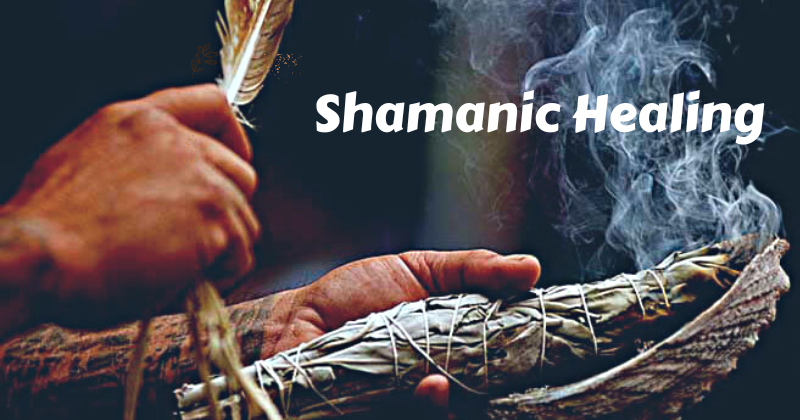wellnessexclusive.com
Your Free Guide to Good Health!

Alternative Therapies
- Alternative Medicine
- Access Bars
- Access Consciousness
- Access Body Processes
- Acupressure
- Acupuncture
- Akashic Records
- The Alexander Technique
- Angel Healing
- Aura Reading
- Ayurveda
- Bach Flower Remedies
- Bio-Energetics
- Breathwork
- Chakra Healing
- Cosmetic Acupuncture
- Crystal Healing
- Cupping Therapy
- Divine Healing Hands
- Distance Healing
- Emotional Freedom Technique (EFT)
- Energy Healing
- Energy Medicine
- Ergonomics
- Family Constellation
- Face Reading
- Fengshui
- Holistic Solutions
- Holy Fire Reiki
- Homeopathy
- Ho'oponopono
- Humkara with Haleem
- Hypnotherapy
- Inner Child Therapy
- Jikiden Reiki
- Lama Fera
- Law of Attraction
- Lecher Antenna
- Manual Therapy
- Meditation
- Melchizedek Method
- Merlin Trinity Healing
- Money Reiki
- Motivational Counseling
- Mudra Healing
- Munay - Ki Rites
- Nadi Vaidya
- Naturopathy
- Neuro Linguistic Programming (NLP)
- Numerology
- Panchakarma (Ayurveda)
- Past Life Regression
- Pendulum Dowsing
- Physiotherapy
- Pranic Healing
- Pythagorean Numerology
- Pyramids
- Redikall Healing
- Lama Fera Reiki
- Rudraksh
- Shamanic Healing
- Sujok therapy
- Symphony of Possibilities
- Tarot
- Tera MaiTM Seichem
- Theta Healing
- Twin Flame Healing
- Unani Medicine
- Violet Flame Healing
- Vision Board
- Yoga
- Wicca
- Womb Healing
Diseases & Conditions
- Acne & Pimples
- Allergies
- Arthritis
- Asthma
- Behavioural Disorders
- Dandruff
- Diabetes
- Emotional Problems
- Gallstones
- Gastritis
- Hairloss
- Heart Diseases
- Hormonal Problems
- Hypertension
- Immune Disorders
- Infections
- Infertility
- Jaundice
- Kidney Disorders
- Liver Disorders
- Menstrual Disorders
- Migraine
- Neck & Back Pain
- Obesity
- Osteoporosis
- Peptic Ulcer
- Prevention
- Prostate Problems
- Psoriasis
- Sexual Dysfunctions
- Sinusitis
- Sleep Disorders
- Skin Diseases
- Stress
- Thyroid Disorders
- Ulcerative Colitis
- Urinary Infections
General Wellness
Shamanic Healing in Hyderabad

Geetu Thakur
Geetu is a certified and well versed in Sound bowl Healing, Sounds of Shiva, Bhairavi Yantra, Family Constellations, Jin Shin Jyutsu as a Self-Healing Modality and is a Reconnective Healing Facilitator...

Ms. Vibha Gurtu

Vibha Author, Spiritual Alchemist, and Life Transformation Coach. She creates a safe space for individuals to recognize their emotions and reconnect with themselves, and empowers individuals to break free from repetitive patterns, drawing on her two decades of experience.

Dr. Karuna Kapil

Dr. Karuna Kapil is a dentist turned change facilitator. She is trained in Crystals, Tarot, Angel Healing, Reiki, Numerology, Neuro Linguistic Programming, Breakthrough Coaching, Access Bars®, Access Body Processes...


Mr. Manav Sachdeva
Manav Sachdeva is a lifelong learner and student, trained under the best teachers to develop and enrich the knowledge he brings to his customers and students. Manav has been practicing energy medicine for twenty years and is known for having a keen sense of intuition. Manav is an expert in the potent, age-old Surya Vigyan energy healing system and aura reading.


Swati Handa
As a spiritual coach and Psychic healer she practices Akashic Records Readeing & Healing, Angelic Healing, Numerology, Reiki.

SHAMANIC HEALING

Shamanism or Shamanic healing it is a potent, transforming technique that aids in the release of emotional traumas, obstacles, loads, outdated ideas, and karmic baggage. They will 'summon' these spirits to repair a soul, who may then experience real, physical healing in the earth realm. A shaman will simply act as the connection between you and your guides in the other realms, and make sure your soul is protected throughout the process.
This can be considered an 'unconscious' journey into the spirit world. We also leave our bodies when we experience trauma, as our soul tries to protect itself. Our souls leave the body for a number of reasons but few of us have the ability to leave the body at will. This is where shamanic training and healing comes in.
Benefits of Shamanism or Shamanic healing
Shamanism, with its deep roots in indigenous cultures around the world, can offer various benefits, both spiritual and practical. While its practices and interpretations can vary widely, here are some common benefits associated with shamanic traditions:
Spiritual and Psychological Benefits
Enhanced Self-Awareness: Shamanic practices often involve journeys into altered states of consciousness, which can lead to greater self-understanding and personal insight.
Healing and Transformation: Shamanic healing rituals may help individuals process and release emotional or spiritual blockages, leading to profound personal transformation and a sense of renewal.
Connection to Nature: Many shamanic traditions emphasize a deep connection to nature and the environment, fostering a sense of harmony and respect for the natural world.
Guidance and Wisdom: Shamanic practices can provide guidance through spirit journeys or consultations with spirit guides, offering insight into personal challenges and life decisions.
Community and Belonging: Participating in shamanic rituals or gatherings can create a sense of community and belonging, which is important for emotional and social well-being.
Practical Benefits
Stress Reduction: The meditative and ritualistic aspects of shamanism can help reduce stress and promote relaxation, similar to other mindfulness practices.
Holistic Health: Shamanic healing often addresses the mind, body, and spirit as interconnected, which can complement other forms of medical or therapeutic care.
Empowerment: Shamanic practices can empower individuals by helping them connect with their inner strength and intuition, leading to greater confidence and self-efficacy.
Creative Inspiration: The symbolic and ritualistic elements of shamanism can inspire creativity and problem-solving, helping individuals approach challenges from new perspectives.
Cultural Enrichment: Engaging with shamanic practices can offer a broader understanding of diverse cultural traditions and philosophies, enriching one's worldview.
It's worth noting that while many people find value in shamanic practices, they may not be suitable for everyone. It’s always important to approach such practices with respect and consideration for their cultural origins and to seek guidance from knowledgeable practitioners.






